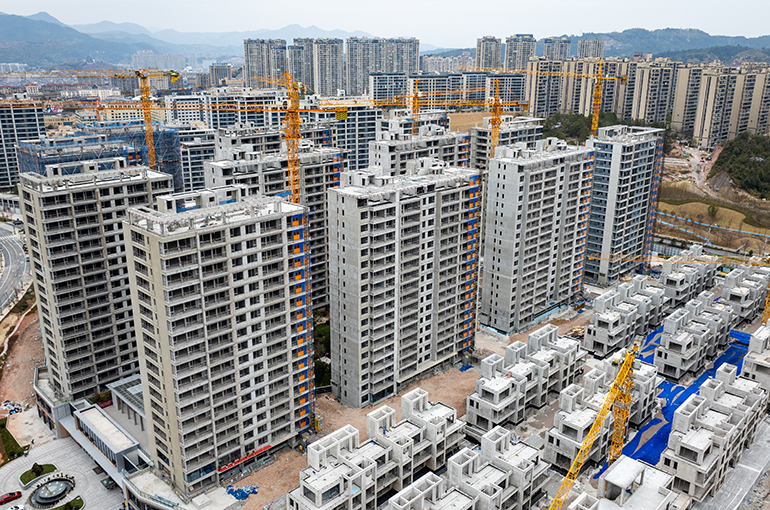 China’s Housing Market to Stay Polarized in 2025, Research Body Says
China’s Housing Market to Stay Polarized in 2025, Research Body Says(Yicai) June 30 -- China’s real estate market will remain polarized this year, as new home sales rise in major cities and decline in smaller ones, creating selective opportunities, according to a recent report by the China Index Academy.
Spurred by policies introduced last September, new home sales generally stabilized in the first five months of 2025, but were accompanied by increased segmentation, the report by the independent research institution said. First‑tier markets saw overall growth, second‑tier cities were roughly flat, and third‑ and fourth‑tier markets mainly contracted. Pre-owned home sales rose and inventories fell.
This divide is also evident in transaction volumes and prices. As of June 25, the transaction area in first- and second-tier cities rose by 18 percent and 16 percent, respectively, from a year earlier. First-tier cities also saw a 47 percent jump in land transfer fees, while second-tier cities recorded a 37 percent gain. In contrast, third- and fourth-tier cities witnessed a 15 percent drop in transaction area and a 1 percent dip in fees.
In addition to the widening gap between large and small cities, the market is showing a growing preference for pre-owned housing. In the second half of the year, homebuyers in key cities are expected to shift toward the second-hand housing market due to limited income growth, moderate price expectations, and a lack of high-quality new home supply, the report said.
Meanwhile, the decline in new home sales across the country is likely to deepen, driven by a high comparison base from last year when sales were boosted by policy support. However, “good cities and good houses” will continue to offer structural opportunities, the report noted.
The shift toward pre-owned housing is already visible in pricing trends. From January to last month, resale prices across 100 cities declined by 3 percent, while new home prices rose by 1 percent, a trend that is expected to persist in the second half.
Digesting excess inventory will take time. Developers are likely to cut their investment by around 10 percent this year because of persistently high inventory levels and market volatility, according to the report.
But land auctions may rebound. Second-half government revenues from residential land sales in 300 cities is projected to increase year on year, even as the total transaction area declines.
Local governments at all levels are expected to step up efforts to implement existing policy measures. These include using special purpose bonds to raise funds to acquire idle land and unsold commercial housing as well as provide financial support for urban renewal programs, the report said.
Editor: Emmi Laine